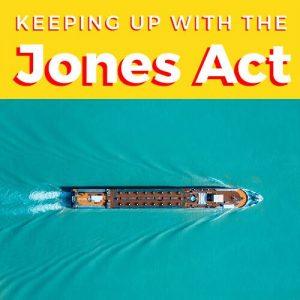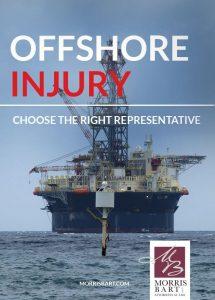
You can file an unseaworthiness claim if you suffered injuries while working on an offshore vessel because of the condition of that boat. You have up to three years to file this type of claim per 46 U.S. Code § 30106. An unseaworthiness claim could allow you to recover compensation for the harm you suffered, including medical bills, missed pay, and intangible losses.
Unseaworthiness injury cases are often complex. You might opt to hire an offshore injury and Jones Act accident lawyer to handle your claim and negotiate for a just settlement. Many personal injury attorneys offer representation based on contingency, so you pay no upfront attorney’s fees.
What Makes a Vessel Unseaworthy?
Unseaworthiness is of grave concern to seamen and sailors who work on ocean-faring ships and other offshore vessels. They often face an increased risk of injuries or death because of:
- A mechanical problem with the boat
- Inadequate training
- Poor working conditions
- Shoddy tools and equipment on the vessel
According to the Louisiana Law Review, seamen have relied on the Doctrine of Unseaworthiness to hold shipowners responsible since at least the 1960s. Maritime law imposes specific responsibilities to owners, including ensuring their boat:
- Is physically safe and seaworthy, including its hull, all decks, and systems
- Is able and equipped to perform its purpose
- Has the proper working tools necessary for each task
- Provides the required safety devices and personal protective equipment
- Has enough life jackets, flotation devices, and other emergency equipment
- Is fully staffed with competent, well-trained workers
Any Issue Could Lead to an Unseaworthiness Claim
Almost any concern about the boat, its equipment, or ship personnel could support an unseaworthiness claim if it leads to an injury or illness. Workers should be able to do their job safely and as directed without having to work around unfit conditions or a lack of training or equipment. Any inadequacy that arises and causes or permits injuries could support a compensation claim from the injured seaman.
For a free legal consultation, call (800) 537-8185
Who Is Liable for an Unseaworthy Vessel?
Vessel owners are strictly liable for the seaworthiness of their boats. Therefore, their duty to inspect, maintain, and supervise the safety of their ship and all workers on the vessel is “non-delegable” under maritime law.
Since the Doctrine of Unseaworthiness relies on strict liability, you do not need to prove negligence. You will not have to show the owner knew about the hazard that led to your injuries. Instead, you will need to demonstrate:
- There was an unseaworthy condition
- This condition caused your injuries
For example, imagine a ladder had a damaged rung. The workers had to skip this rung when climbing the ladder. In doing so, one slipped and fell several feet, suffering a broken arm and a pinched nerve. In this case, the worker would not have to show that the boat owner knew about the broken ladder. The victim would only need to document that the broken ladder existed and caused them to fall.
Are There Any Other Options for Pursuing Compensation in an Unseaworthiness Case?
Some seamen may also qualify to file a case under the Jones Act, 46 U.S. Code § 30104. The Jones Act allows qualifying seamen to pursue a case against their employer for injuries they suffered at work. A Jones Act case takes the place of workers’ compensation since most offshore workers do not qualify under state programs.
However, seamen who qualify under the Jones Act may have an easier time proving an unseaworthiness claim. This is because the Jones Act only allows you to hold your employer responsible. You must also prove negligence and causality to win recovery in a Jones Act claim.
However, under the Doctrine of Unseaworthiness, you can sue the vessel owner, and you don’t need to prove their direct involvement in the unseaworthiness of the ship. You only need to establish the vessel was unseaworthy.
Click to contact our personal injury lawyers today
Do I Need an Attorney to Manage My Unseaworthiness Claim?
Maritime and admiralty law is not well-understood by some law firms. While you can handle an unseaworthiness case on your own, working with a lawyer who handles Jones Act and maritime cases regularly might make sense for you. They can review your claim before you agree to a settlement or make other decisions about pursuing compensation.
If you opt to work with a lawyer, they will determine your best legal options for pursuing compensation, gather evidence, and value your claim. Then, they will attempt to obtain a fair payout that would cover these losses:
- Your medical bills
- Your lost income
- A payment to help support the cost of room and meals you miss onboard
- Pain and suffering
- Other related expenses or losses
An attorney will also ensure you meet all applicable deadlines, protect your rights, and fight for your best interests throughout this process.
Morris Bart, LLC Handles Unseaworthiness Claims and Jones Act Cases
At the Morris Bart law firm, our team is well-versed in maritime and admiralty law. We help injured sailors and seamen seek justice after an injury while working aboard an unseaworthy vessel. We offer free consultations with our team. We have offices in Louisiana, Mississippi, Alabama, and Arkansas.
Call (800) 537-8185 today to speak with our team about your legal options.
Questions?Call (800) 537-8185
to find a Morris Bart office near you.




